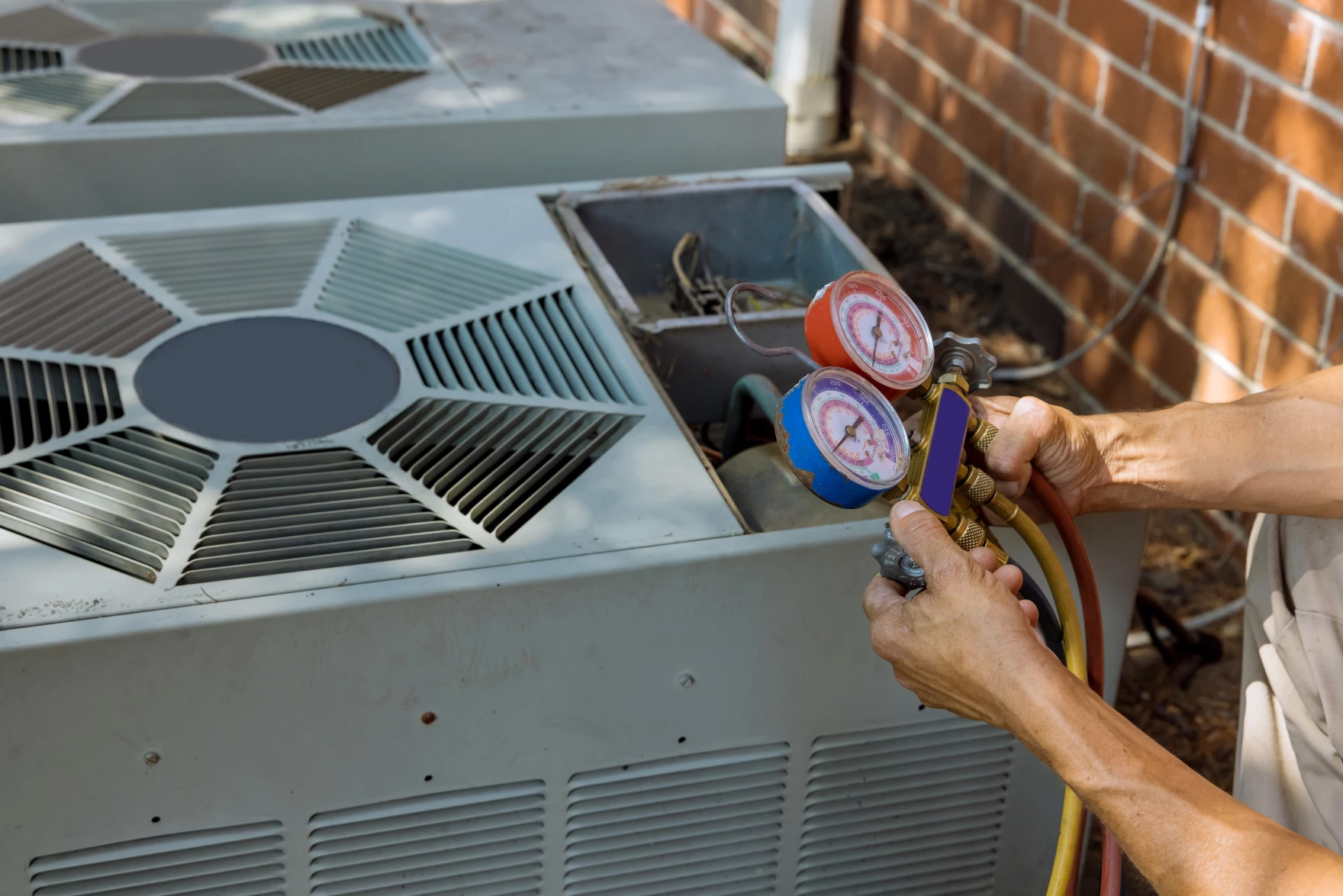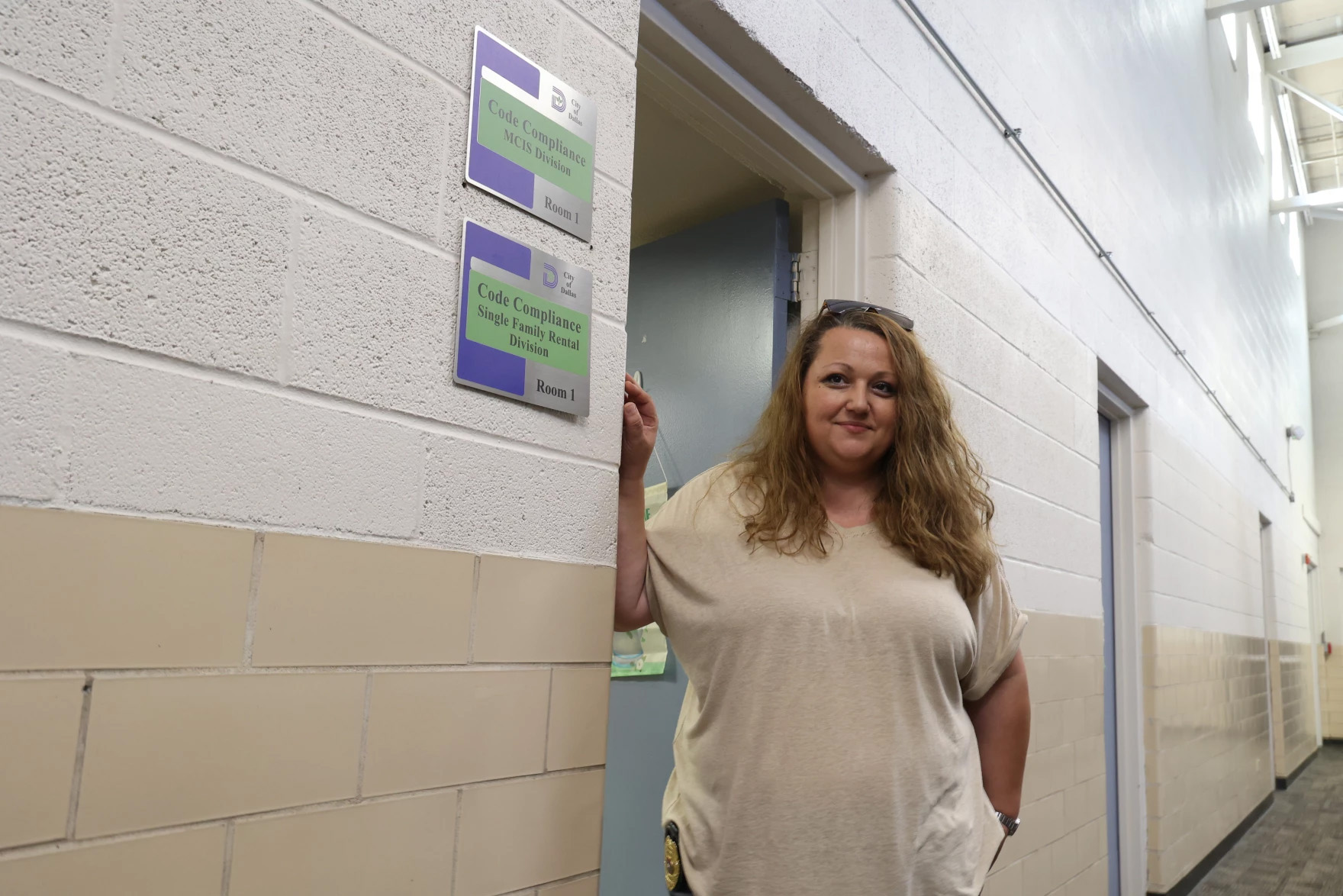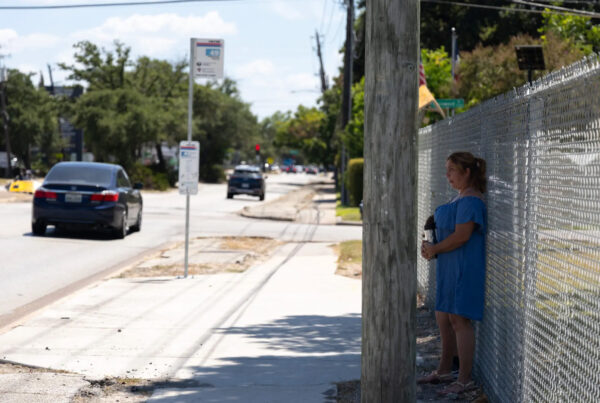From KERA News:
Air conditioning can be lifesaving in a state like Texas, where temperatures regularly soar over 100 degrees and stay that way for long stretches. But for Texans who rent their homes, staving off dangerous summer heat at home is far from guaranteed.
Renters in cities like Dallas, Irving and El Paso have a pretty good summer-heat safety net. But those living elsewhere may find little help from local authorities.
Across the state, more than 54,000 renter households live in a home without any form of air conditioning.
“There is no requirement in the state of Texas that rental units provide air conditioning to tenants,” said Ben Martin, research director for the tenants’ rights group Texas Housers.
KERA News surveyed the 20 largest Texas cities about ordinances governing air conditioning in rental homes, and found that rules vary widely, if they exist at all.
While most Texas renters do have at least some form of air conditioning in their home, Martin said it may not provide adequate cooling, and state law offers little if it stops working.
That’s in a state where heat can be deadly: 279 people in Texas were killed by heat last summer. It was the second-hottest summer in Texas history, before this summer’s brutal heat took that title. This summer’s death toll isn’t clear yet, but emergency rooms have reported treating record numbers of Texans for heat exhaustion and heat stroke.
Babies are among the most vulnerable, as are elderly Texans.
“They often have different health issues like cardiovascular [disease] or diabetes…and because of that physiological setup, they are more vulnerable and at risk for having heat stroke and death from high temperatures,” said Bobuchi Ken-Opurum, research director at the Texas Energy Poverty Research Institute.
State law
The overwhelming majority of the nearly 4 million renter households live in homes that have at least some form of air conditioning, according to federal data. But whether that air conditioning is capable of cooling the home to a comfortable or safe temperature isn’t clear from the data.
For example, 396,000 renter households say they rely on one or more window air conditioning units to cool their homes. While a three-bedroom house with single window air conditioner has air conditioning, it’s likely insufficient to cool the home.
Martin said tenants often face challenges getting landlords to fix air conditioners when it breaks down. Part of the problem, he said, is that that Texas law governing repairs doesn’t say anything in particular about air conditioning.
The Texas property code requires landlords to repair any conditions that “materially affects the physical health or safety of an ordinary tenant,” in a reasonable timeframe. But the law is silent on what, exactly, that means for air conditioning, like whether it has to be able to actually cool the unit to a specific temperature, Martin said.
This provision does allow a tenant to bring a lawsuit to force their landlord to fix the machine, but that can be a lengthy process.
“Unfortunately…it’s very difficult for a tenant to bring one of these suits, and we end up hearing about tenants who go extremely long periods of time without a repaired air conditioning unit,” Martin said.
Sandy Hoy from the Texas Apartment Association, which represents landlords and property managers, points out that tenants also have other legal remedies if a landlord refuses to make required repairs after they were properly notified, including breaking their lease and moving without penalty.
Rules vary
Where cities have local rules, renters may have more options to get quicker fixes, but there’s wide variation, and plenty of cities have nothing on the books regarding air conditioning.
Some cities require air conditioning in all rental homes, but most do not. Some, but not most, define how well an air conditioner has to cool a home. Some cities’ air conditioning rules are in effect year round, while others are limited to the summer months.
Where there are rules, there are often loopholes, too.
“For instance, in the City of Houston’s ordinance, if you have screens on the windows, then that exempts you from the requirement to provide air conditioning in the unit. That exemption is absolutely ridiculous, but it does exist in the ordinance,” Martin said.
Hoy said tenants should carefully read their lease agreements and learn how to best remedy their situation. She also questioned whether ordinances requiring air conditioning and setting standards in city code even work.
“TAA does not have any data that indicates such measures are effective or enforced at the local level,” Hoy said, though she did not point to evidence that they aren’t effective or enforced.
Dallas has one of the clearest local ordinances, and Rosana Savcic says landlords are typically quite responsive. She runs the single- and multi-family rental division of the Dallas’ code compliance department.
The city requires air conditioning in all rental homes “capable of maintaining a room temperature of at least 15 degrees cooler than the outside temperature, but in no event higher than 85 degrees Fahrenheit in each habitable room.” If outside temperatures surpass 110 degrees, the code requires at least one room in the home to be 85 degrees or cooler.
















